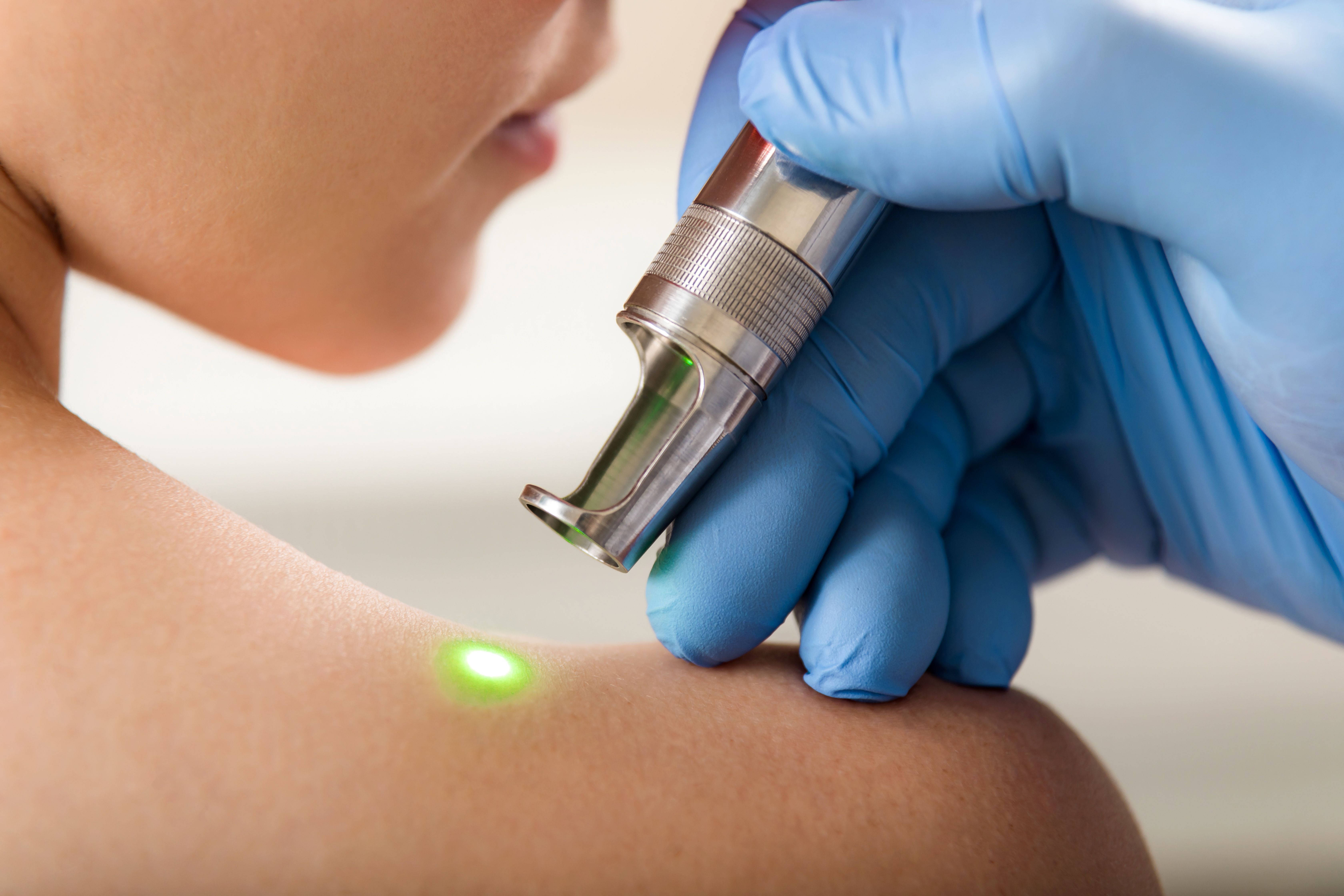- Case-Based Roundtable
- General Dermatology
- Eczema
- Chronic Hand Eczema
- Alopecia
- Aesthetics
- Vitiligo
- COVID-19
- Actinic Keratosis
- Precision Medicine and Biologics
- Rare Disease
- Wound Care
- Rosacea
- Psoriasis
- Psoriatic Arthritis
- Atopic Dermatitis
- Melasma
- NP and PA
- Skin Cancer
- Hidradenitis Suppurativa
- Drug Watch
- Pigmentary Disorders
- Acne
- Pediatric Dermatology
- Practice Management
- Prurigo Nodularis
- Buy-and-Bill
Article
Study Review Finds Vitamin C is Effective in Treating Signs of Photoaging
Author(s):
Studies found that skin treated with vitamin C was smoother and less wrinkled than skin treated with a placebo.
The use of vitamin C as a treatment for signs of photoaging has climbed in the last 5 years. In a recent review of studies investigating the topical use of ascorbic acid, researchers concluded that vitamin C is an effective treatment for wrinkled skin and has depigmenting characteristics, although longer term use is likely required to achieve optimal results.1
The primary functions of vitamin C are stimulating collagen biosynthesis and the phagocytic function of leukocytes, offering protection against ultraviolet (UV)-induced damage, and proline hydroxylation.2
To assess the effectiveness of vitamin C on signs of photoaging including wrinkles, elastosis, and irregular pigmentation, among others, investigators searched articles from the MEDLINE, CENTRAL, and EMBASE databases and from the cosmeceutical industry that met required criteria, including eliminating duplicates.
The final review included 139 participants with Fitzpatrick skin types I-V aged 23-72 years. The length of the studies ranged from 2 weeks to 6 months. Vitamin C concentrations ranged from 3.75% to 20%. Of the 7 studies reviewed, 6 used a placebo or control group and the other used a comparison group using hydroquinone. All studies included in the review were randomized, 6 were double-blind and 1 was single-blind.
Most of the studies used vitamin C concentrations under 10%, although one study used a concentration of 20%. To overcome the challenge of vitamin C being repelled by epidermal cells, different protocols and formulations have been developed.
Investigators used several measurements to determine effectiveness of vitamin C, including the Melasma Area and Severity Index, Pigmentation Scores using colorimetric equipment, objective wrinkling evaluations, clinical evaluations by dermatologists, and self-assessments of participants.
Of the 3 randomized controlled trials (RCTs) that examined the topography of skin treated topically with ascorbic acid, all reported that skin treated with vitamin C appeared smoother and less wrinkled than skin treated with a placebo or control.
In study participants with melasma or solar lentigines, objective measures showed an improvement in skin lightening. However, results of clinical and self-assessments did not report a lightening of skin with use of vitamin C. This difference could be attributed to the length of the studies, indicating that longer studies may need to be done.
The high safety profile of vitamin C makes it an attractive alternative to some other topical treatments, such as retinoids. Authors concluded that vitamin C can be used effectively to treat signs of photoaging and pigmentation.
References
- Correia G, Magina S. Efficacy of topical vitamin C in melasma and photoaging: A systematic review. J Cosmet Dermatol. 2023;22(7):1938-1945. doi:10.1111/jocd.15748. https://onlinelibrary.wiley.com/doi/full/10.1111/jocd.15748?campaign=woletoc
- Pullar JM, Carr AC, Vissers MCM. The Roles of Vitamin C in Skin Health. Nutrients. 2017;9(8):866. Published 2017 Aug 12. doi:10.3390/nu9080866. https://www.mdpi.com/2072-6643/9/8/866
Newsletter
Like what you’re reading? Subscribe to Dermatology Times for weekly updates on therapies, innovations, and real-world practice tips.







